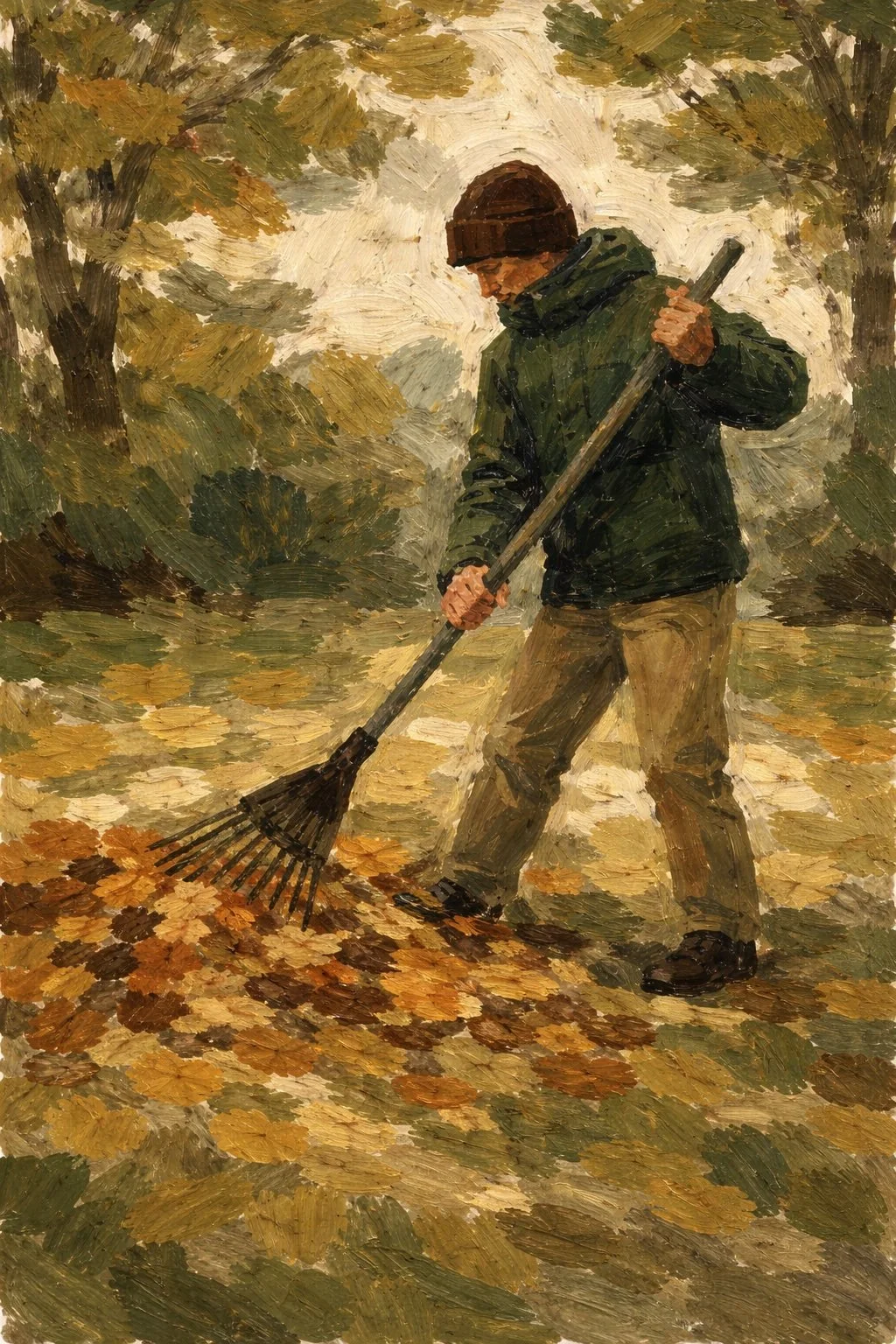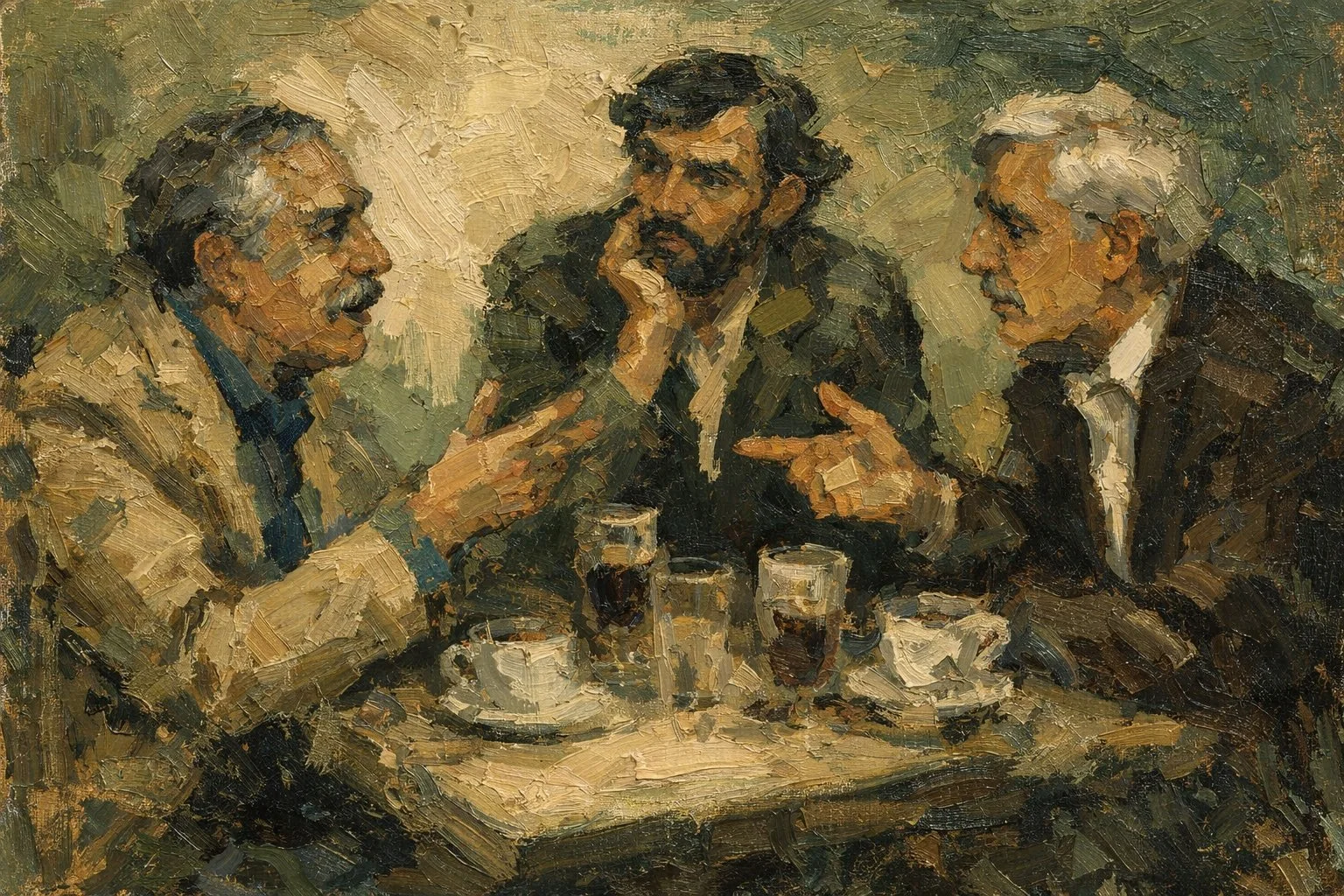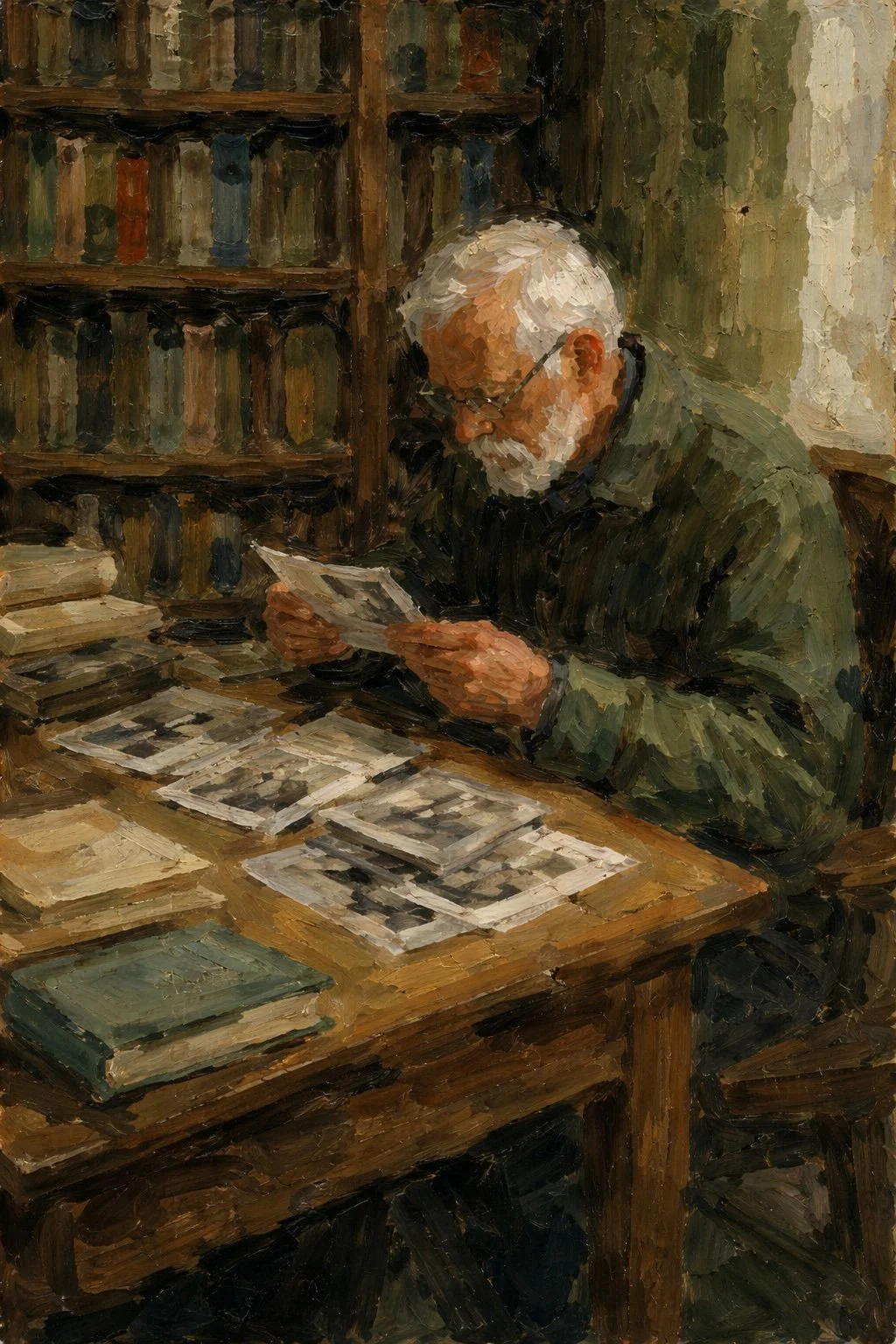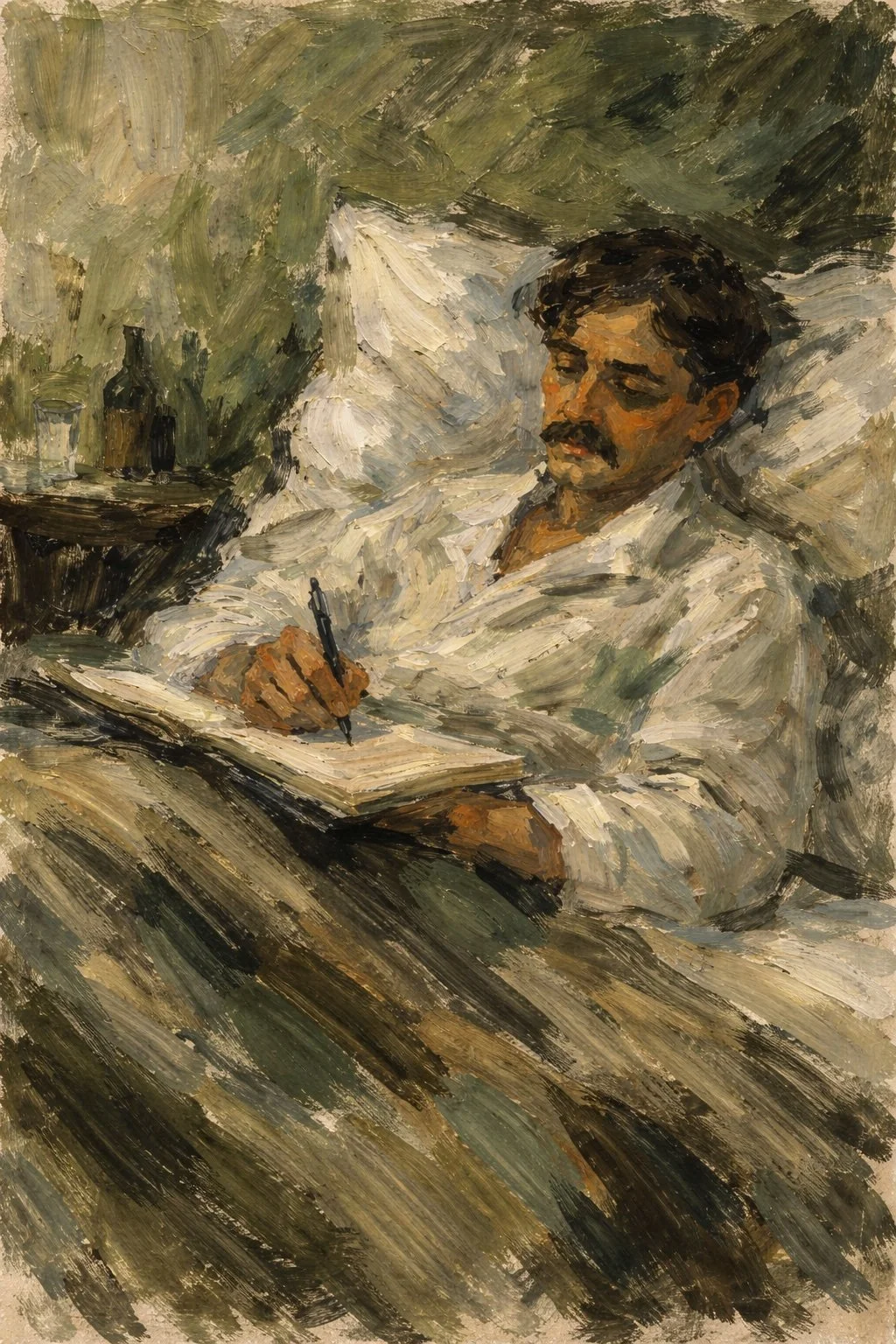Welcome to our informational blog.
Topics covered include literary theory and practice, academic writing techniques, philosophy of education, and explanations of our methods for strengthening creative intelligence.
What Manual Labor Teaches Writers
Manual labor teaches a particular relationship to time. Progress can be slow and uneven. Mastery comes through accumulated hours rather than sudden insight. For writers, this sensibility counters the fantasy that a novel should arrive whole, or that inspiration alone will carry a project forward. Instead, it frames writing as a daily practice, one shaped by endurance and humility. Many writers have internalized either unrealistic artistic myths or the belief that their lived experience has no place in literary work. Novel writing mentorship helps a writer recognize the value of what they already know how to do.
Writing for the Ear: Repetition in Speechwriting
A professional writing coach approaches repetition as a structural question rather than a stylistic tic. They notice where a phrase wants to return and where it has already done its work. Coaching sessions often involve reading drafts aloud, marking breath points, and tracking how ideas build across the arc of the speech.
Hybrid Novels and the Problem of Placement
Many literary writers underestimate how much invisible labor traditional publishers absorb. When that infrastructure disappears, the work becomes the writer’s responsibility. A self-publishing consultant helps writers understand what matters and what does not, without imposing genre clichés or pressuring a book to conform to the market.
Narrative Authority in the Latin American Boom
A writer may admire García Márquez’s confidence but feel uncomfortable asserting that kind of narrative dominance. Another may love Cortázar’s openness but struggle with maintaining a coherent narrative. A third may gravitate toward Vargas Llosa’s architecture but risk overdetermining the reader’s experience. This is where the role of a novel coach becomes especially relevant.
The Hidden Patterns Inside Early Drafts
A publishing coach who understands both craft and the realities of the publishing landscape knows that a theme cannot be imposed from the outside. It has to be recognized, refined, and clarified through revision. Rather than asking, “What do you want this book to say?” a good coach pays attention to what the manuscript keeps saying on its own.
The Contract You Make on Page One
A professional script reader can tell you what kind of movie they believe they are reading by page ten. They can identify mismatches between tone and action, between pacing and subject matter, between what the script seems to promise and what it later delivers. This feedback is difficult to generate on your own, especially when you are invested in protecting the work.
The Private Reader
Many writers come to coaching with a sense that they are writing under surveillance. They describe feeling watched, judged, or prematurely evaluated. This feeling often traces back to workshop culture, academic grading, and early feedback that arrived before the work had fully formed. Over time, the writer internalizes those voices. A writing coach helps externalize them.
The Long Arc of Ambition in a Writer’s Career
As ambition evolves, author mentorship begins to shift. A strong mentor helps identify patterns in a writer’s work, both strengths and habits that limit growth. This kind of guidance resists general advice. It attends closely to the writer’s material, helping them see where ambition exceeds execution or where fear has narrowed the possibilities within a draft.
Writing While Waiting
Unlike agents or editors, whose engagement often begins once momentum is visible, a book publishing coach can help a writer recognize waiting as part of the work rather than a failure of it. On the practical level, a coach helps assess whether a manuscript is truly stalled or simply incubating. They can identify when revision is productive and when distance would serve the work better.
The Difference Between Voice and Persona
A good book publishing consultant understands that voice does not need to be invented or defended. When working with author bios, synopses, or pitch materials, a consultant can help the writer describe their work in a way that reflects its actual temperament.
The Long Life of Failed Books
A publishing consultant operates at the intersection of craft, market awareness, and long-term strategy. Unlike an editor focused primarily on the text, or an agent focused on immediate saleability, a consultant can help a writer understand how their work is likely to be received and why. This understanding is crucial in preventing avoidable forms of failure.
After the Manuscript: Navigating the Emotional Aftermath
While much attention is given to coaching during drafting and revision, the period after completion is often when writers need support most. A publishing coach helps contextualize the emotional turbulence rather than pathologizing it. They understand that doubt does not mean the work is weak. It means the writer is standing at a threshold.
The Writer’s Archive: Travel Journals and the Shape of a Book
The interplay between raw notes and refined narrative resembles a dialogue across time. The writer who kept the travel journal wrote without an audience in mind. The writer shaping the book does so with the reader’s experience at the forefront. A publishing coach helps bridge these two versions of the writer.
Intertextuality: Crafting a Novel in Conversation with the Past
A writer exploring intertextuality draws strength from a clear understanding of why certain references matter. Precision matters because every echo shapes a reader’s attention. A book writing consultant enters here as a practical and interpretive partner. Many writers sense an influence working through them but have difficulty articulating exactly how that influence functions on the page. A consultant can help them examine the pattern, clarifying whether an allusion strengthens a moment or dilutes it.
Lessons in Scale from the Nineteenth Century Novel
The Victorian novel trusts the reader’s appetite for gradual revelation. It relies on accumulation to invite a slower gaze. Working with a novel writing coach can help a writer translate these Victorian lessons into contemporary practice.
Training the Writer's Eye With Genre Fiction
A mystery may have a compelling premise yet lack the careful scaffolding that allows clues to feel earned. A fantasy novel may carry a vivid world but struggle to integrate its systems into the emotional arc of the characters. A book publishing coach helps writers identify the cognitive patterns the genre expects so that they can engage with them intentionally.
Ritual, Presence, and the Long Apprenticeship of Writing
The presence of a creative writing mentor can help a writer understand what they need in order to work consistently. Mentors often observe patterns that writers overlook. They might notice that a writer produces stronger work during shorter sessions or that they benefit from beginning with a specific warm-up exercise. These insights become part of the writer’s private toolkit.
Learning to Remember: The Bildungsroman and the Writer’s Own Education
The best novel coaches understand that the writer’s craft and the writer’s consciousness are inseparable. To help someone shape a novel is to help them clarify their relationship to knowledge, power, and self-knowledge—the same concerns that animate the Bildungsroman. When done well, this relationship embodies the very philosophical principles that the Bildungsroman explores: autonomy, dialogue, moral perception, and the slow maturation of judgment.
On Finishing: Learning to Step Away
A finished manuscript is not a perfect one. It is a work ready to engage with others—agents, editors, consultants, readers—on its own terms. Future revisions may follow, but those belong to a different phase. The first completion allows the writer to release the private attachment and begin the public life of the book.
The Architecture of Adventure: Writing the Quest Frame
The stories that endure are those that take the familiar and make it new, that remind us of the power of the quest while revealing paths we had not yet imagined. For that, craft, awareness, and the honest eye of manuscript critique are indispensable companions on the writer’s journey.





















